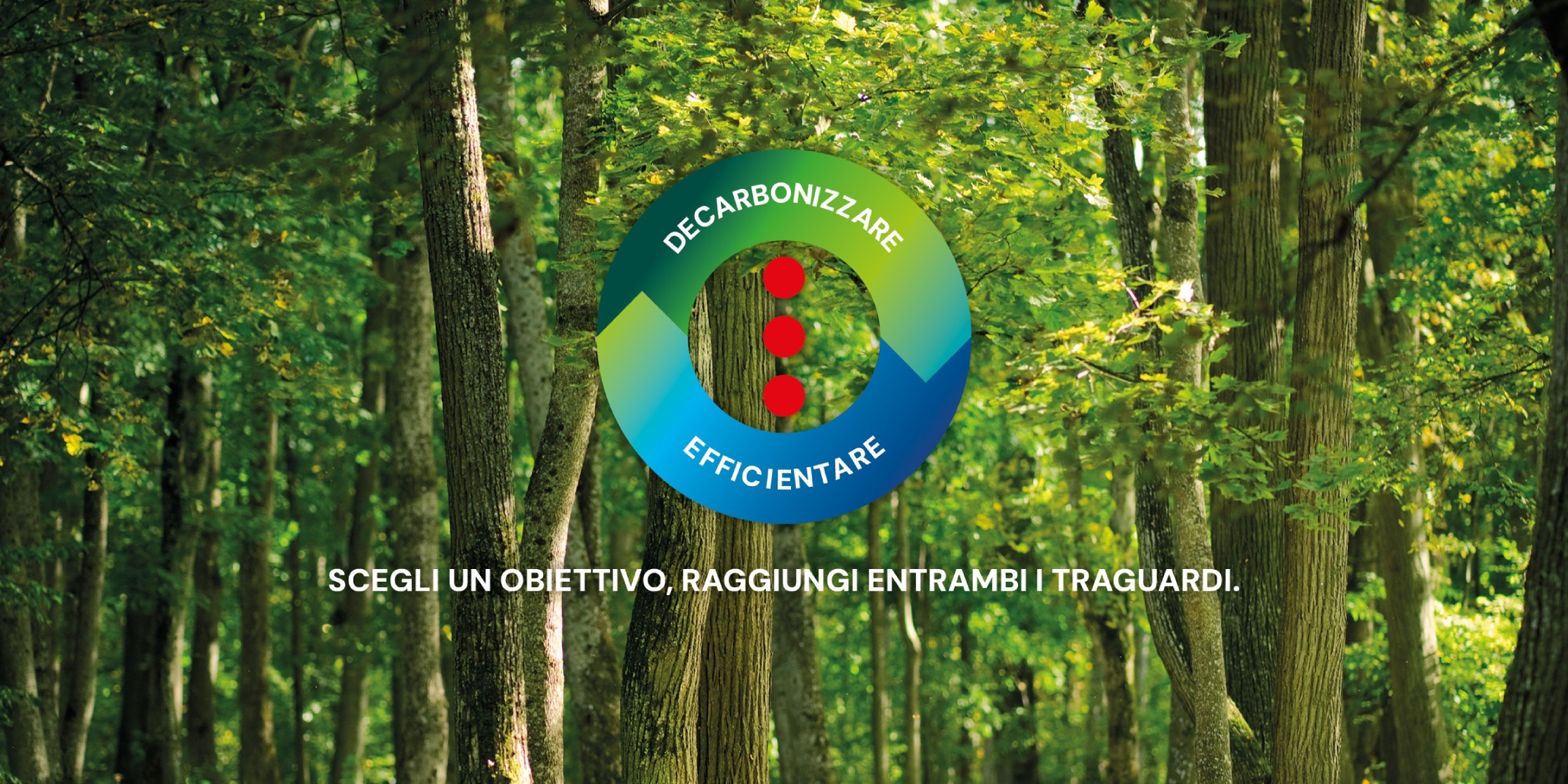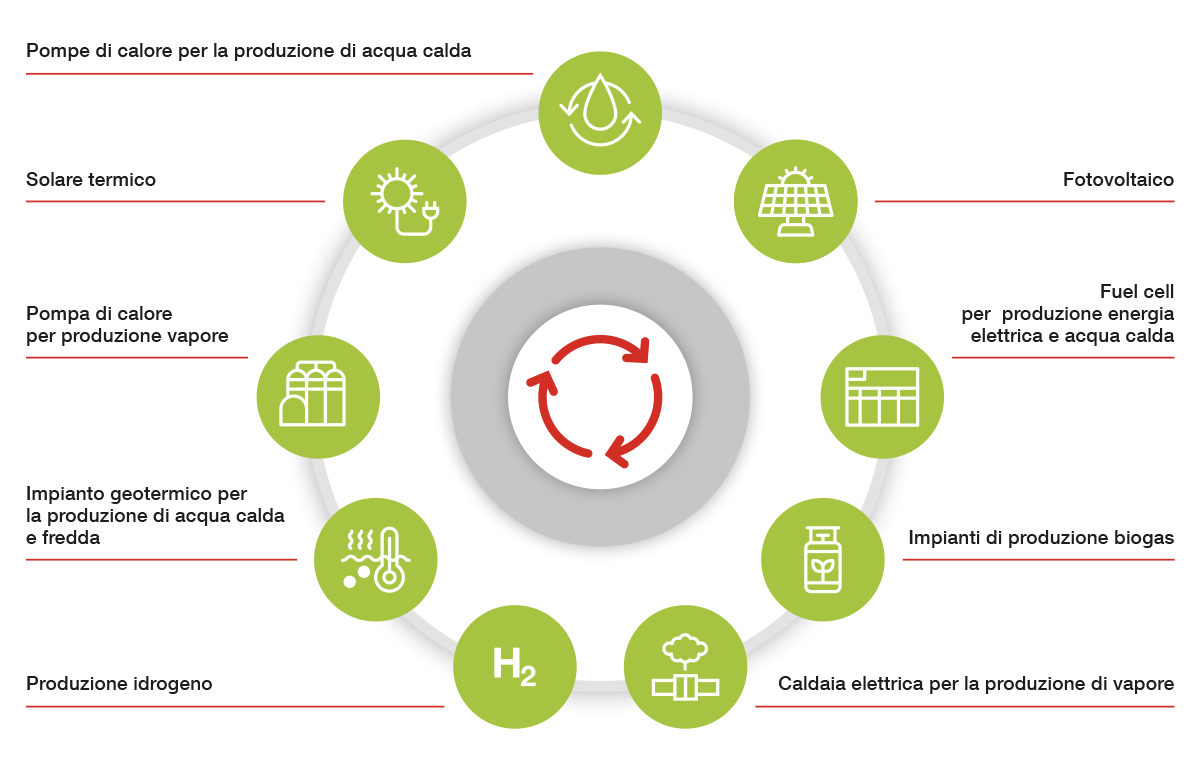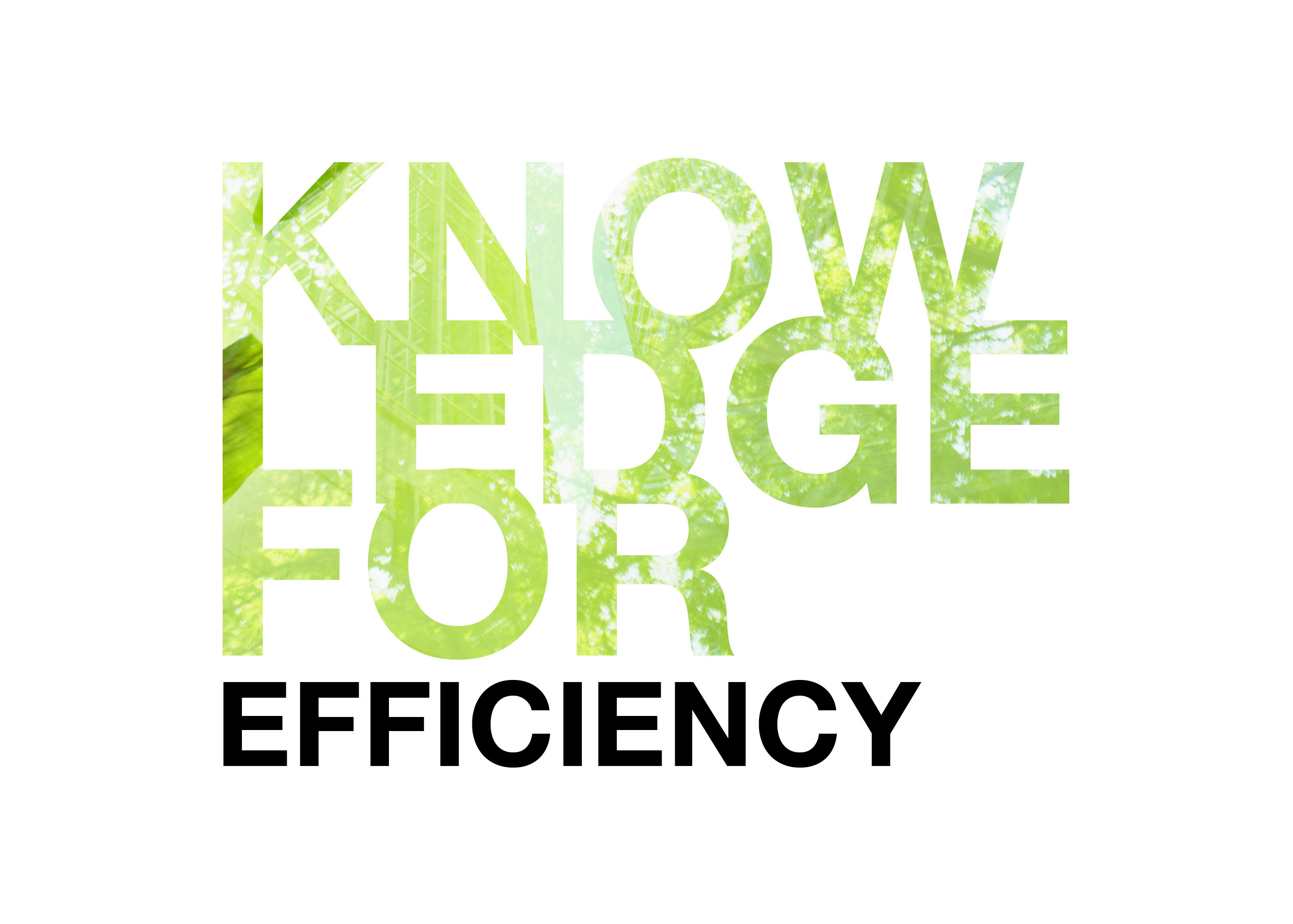Energy efficiency and decarbonization
Choose one goal, achieve both goals
Energy transition
Present and future
The scenario.
With European climate legislation, achieving the climate target of reducing EU emissions by at least 55 percent by 2030 becomes a legal obligation.
The countries involved are working on new legislation to achieve this goal and make the EU climate neutral by 2050.
Italy has also joined a European program with decarbonization targets to 2030, signing the Paris Agreements, including targets on the reduction of tons of CO2 emitted, to help avoid rising temperatures.

The goal
Cefla aims to stimulate an active discussion on decarbonization issues in order to reduce the carbon footprint, i.e. harmful emissions into the atmosphere. And the first step is to help companies, as well as large infrastructures, generate efficiency. Energy production and use account for more than 75 percent of the EU's greenhouse gas emissions. Decarbonization of the energy system within the EU is therefore critical to achieving the 2030 climate goals and actuating the EU's long-term strategy of achieving carbon neutrality by 2050.

Whether your goal is to bring your plant's methane consumption to zero or to achieve energy efficiency that will reduce costs associated with operations or production, the path you take together with Cefla will lead to achieving both goals.
Cefla supports all customers who need to make their plants efficient, in terms of both energy and processes.


Solutions.
To reduce greenhouse gas emissions, balancing different technologies becomes a key choice, because the winning configuration is just the right mix, both at country level and at small and medium industry level (photovoltaics, cogeneration, heat pumps, fuel switching with hydrogen insertion etc.).
The route
We will start with an analysis aimed at identifying the ideal technology mix to generate energy efficiency for a management or production process.
So many technologies can be deployed - individually they each have their own allocation, but when considered in coordination with others, they can generate an even greater benefit.
If I generate efficiency, it follows that I can reduce emissions and am in fact decarbonizing.
The path to decarbonization is a big commitment, but also a big opportunity. We will accompany you along that path, from analysis to implementation, to make it doubly rewarding.
Energy efficiency and decarbonization are closely linked goals.
en.vision
Do you want to generate energy efficiency by optimizing your facilities and processes? Learn moreCefla
Your partner for the energy transition
Today we are your partner on the path to efficiency as well as decarbonization goals.
We are unique in that we support clients in the analysis phase but more importantly, since we have always been plant engineers, we provide the required follow-up during implementation and subsequent management.
Why Choose Cefla
Energy production
We have the experience required to analyze 360-degree energy production systems.
Engineering
We possess engineering capabilities to integrate different technologies with each other, not only at the analysis stage but through all the stages of implementation.
All in one
Our uniqueness? We give the client a solution that can be built, a solution that is therefore also sustainable in terms of implementation, timing and economics.
By your side
We are with you in your daily work. We analyze critical issues and develop new solutions, generating energy efficiency, economic savings and making production more sustainable.

Why choose NOVA by Cefla
Zero emissions
Fuel cells are devices that convert the chemical energy of fuels - natural gas, biogas, biomethane or hydrogen - into electricity and heat, without combustion.
High efficiency
The higher efficiency, compared to traditional systems (endothermic engines or turbines), generates decarbonization: more energy is produced with definitely higher electrical efficiency.
Reliability and modularity
The 24-hour energy reliability and the plug & play modular system make NOVA by Cefla a fast, easy to implement, and optimal solution for service continuity.

Find the perfect solution for your business


